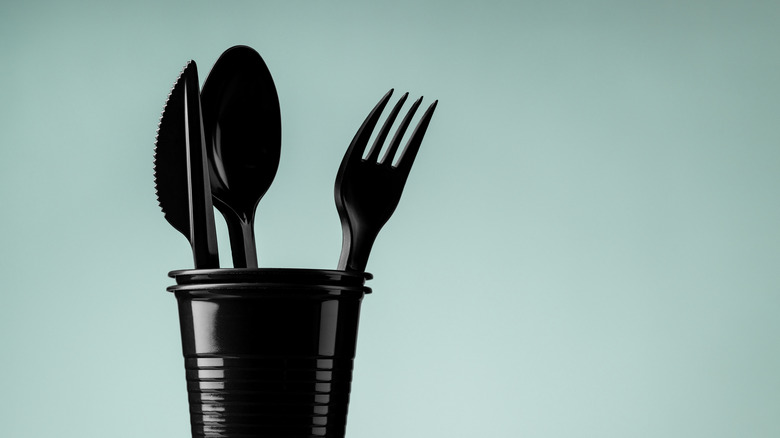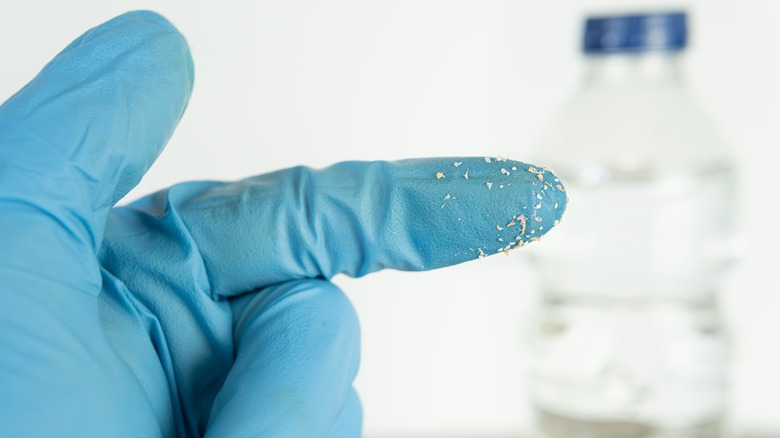The Eco-Friendly Alternative To Plastic Utensils That Won't Fill You With Microplastics
We've all used plastic utensils at picnics, with takeout, or at the office kitchen. Some of us even gather and keep excess plastic spoons, forks, and knives so we can use them some other time. There's no denying they're pretty convenient since not everyone likes carrying dirty metal utensils around. However, considering the Earth's growing problem with plastics (especially microplastics), it's time we consider ditching disposable plastic utensils once and for all and switch to a more eco-friendly alternative — like disposable bamboo utensils.
Compared to their petroleum-based plastic counterparts, bamboo utensils are 100% biodegradable. Aside from being environmentally friendly, they're safer for the body, too. Bamboo is an exceptionally sustainable material since the plant grows rapidly and doesn't need fertilizer to thrive. It also easily regenerates after harvest without the need for replanting. When shaped into utensils, bamboo remains durable, stable, and heat-resistant, so it's safe to use in both hot and cold meals.
Switching to disposable bamboo utensils makes it easy to avoid eating or drinking microplastics. Plastic spoons and forks can warp, melt, or leach chemicals that are harmful to the body. Worse, they shed small plastic particles which are invisible to the naked eye. When ingested, microplastics enter the bloodstream and raise concerns for a slew of health issues. Meanwhile, since bamboo utensils don't have synthetic polymers, the risk of ingesting plastic fragments is nil.
The problem with microplastics
For some time now, we've become increasingly aware of how dangerous plastic can be to our environment and health. We're told to avoid eating from plastic go-to containers, swap out plastic bottles for metal ones, and basically avoid plastic at all costs. Even purportedly safe composites have their drawbacks, with "microwave safe" plastic now being considered misleading. That is to say, in recent years the scientific community has been putting more emphasis on microplastics, and for good reason.
Ever since the term "microplastics" was coined in the early 2000s to describe tiny fragments of plastic debris, research has been underway to find out what it does to the human body. In 2022, researchers detected microplastics in the bloodstream of 80% of people they tested. Three years later, another study discovered an alarming accumulation of microplastics in human brains and other organs. As more evidence continues to unfold, scientists infer that microplastics cause health issues like inflammation and abnormal organ development, among other things.
There are many ways for microplastics to enter the body, but one that's surprisingly overlooked is the use of plastic utensils. Hot water exposure can cause these disposable plastics to release millions of microplastic particles, which has us wondering what's happening when we use them to pick up hot food. It's not just temperature, either. Salt, acid, and oil (all of which are plentiful in food) can also do the same. Imagine how many microplastics would end up in your body if you used plastic utensils for every meal.

